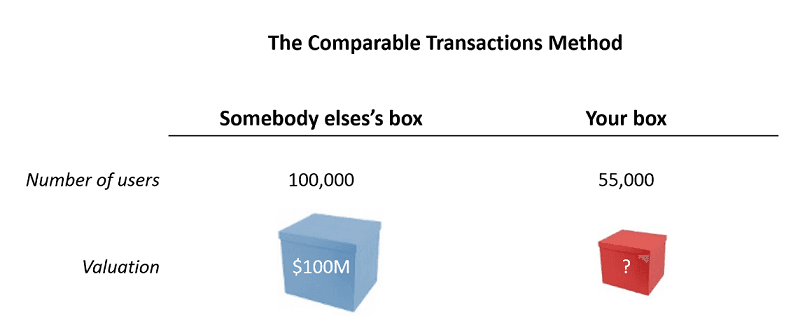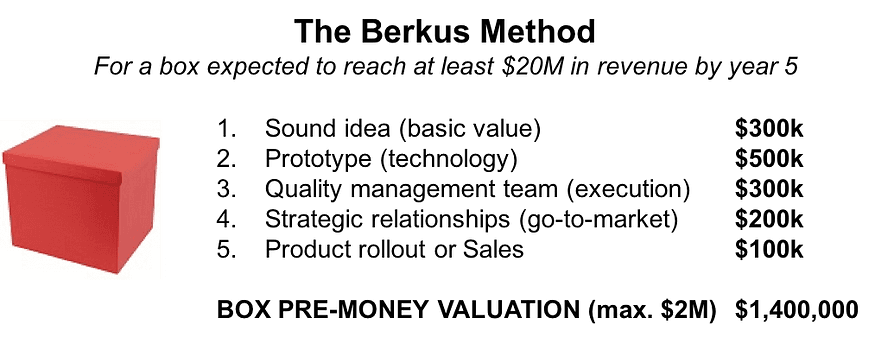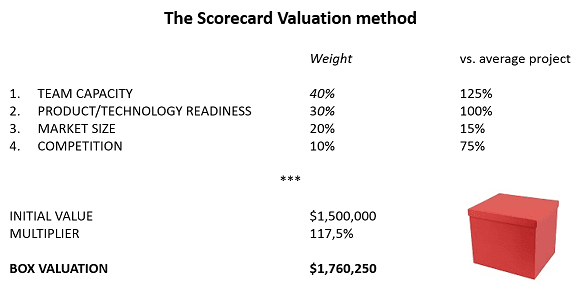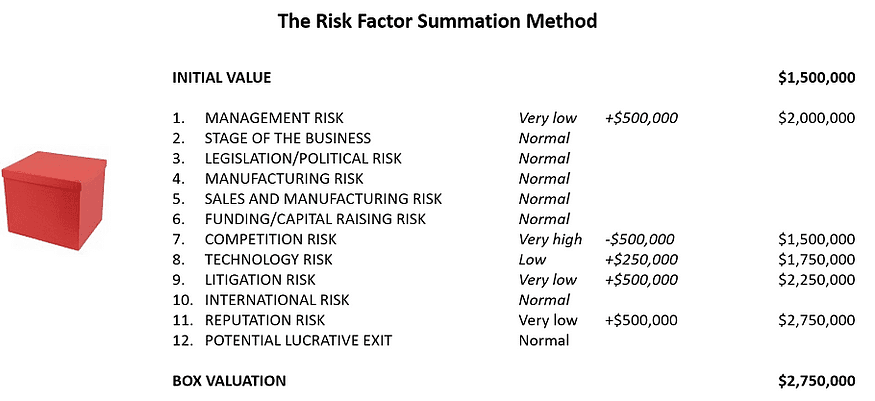Value your startup with the Comparable Transactions Method
The Comparable Transactions Method is really just a rule of three.
Depending on the type of box you are building, you want to find an indicator that will be a good proxy for the value of your box. This indicator can be specific to your industry: Monthly Recurring Revenue (Saas), HR headcount (Interim), Number of outlets (Retail), Patent filed (Medtech/Biotech), Weekly Active Users or WAU (Messengers). Most of the time, you can just take lines from the P&L: sales, gross margin, EBITDA, etc.
It is meant for pre- and post-revenue startups.
50
215 reads
CURATED FROM
IDEAS CURATED BY
The idea is part of this collection:
Learn more about moneyandinvestments with this collection
How to choose the right music for different tasks
The benefits of listening to music while working
How music affects productivity
Related collections
Similar ideas to Value your startup with the Comparable Transactions Method
Value your startup with the Berkus Method
The Berkus Method is a simple and convenient rule of thumb to estimate the value of your box. It was designed by Dave Berkus, a renowned author and business angel investor. It is meant for pre-revenue startups.
The starting point is: do you believe that the box can reach $20M in reven...
Value your startup with the Scorecard Valuation Method
The Scorecard Valuation Method is a more elaborate approach to the box valuation problem. It starts the same way as the RFS method i.e. you determine a base valuation for your box, then you adjust the value for a certain set of criteria.
Nothing new, except that those criteria are themselv...
Value your startup with the Risk Factor Summation Method
The Risk Factor Summation Method or RFS Method is a slightly more evolved version of the Berkus Method. First, you determine an initial value for your box. Then you adjust said value for 12 risk factors inherent to box-building.
The initial value is determined as the average value for a sim...
Read & Learn
20x Faster
without
deepstash
with
deepstash
with
deepstash
Personalized microlearning
—
100+ Learning Journeys
—
Access to 200,000+ ideas
—
Access to the mobile app
—
Unlimited idea saving
—
—
Unlimited history
—
—
Unlimited listening to ideas
—
—
Downloading & offline access
—
—
Supercharge your mind with one idea per day
Enter your email and spend 1 minute every day to learn something new.
I agree to receive email updates



